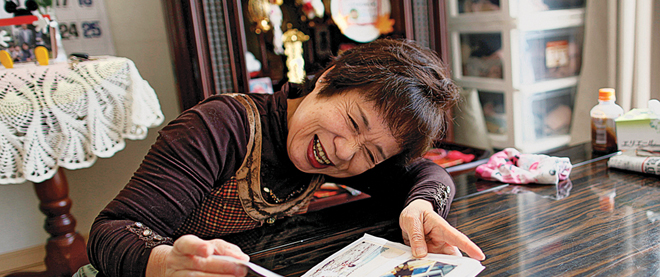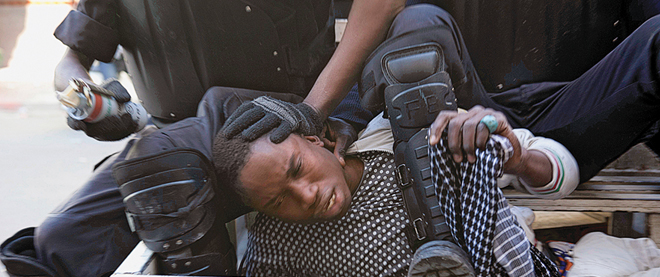Good news, bad news: Feb. 17-23, 2011
U.S politicians press for America to arm Syrian rebels, while South Korea conducts military drills near its border with North Korea
Toru Hanai/Reuters
Share
Good news

A euro lifeline
Greece received its second major bailout this week, worth $172 billion. The deal, agreed to by European leaders, reduces the chance of an imminent default and of Greece being forced out of the eurozone. There are still major challenges ahead. Greece remains saddled with a massive debt load (despite private creditors taking a loss of over 50 per cent as part of the deal) and it faces years of little or no economic growth. Whether it can stick to necessary austerity measures also remains to be seen. But the deal steers Europe in the right direction: toward resolving its debt crisis rather than falling apart.
The right to bear arms
U.S. senators John McCain and Lindsey Graham are pushing for America to arm Syrian rebels, who continue to come under attack by government forces (who are being supplied arms by Iran and Russia). As many as 50 people were killed in attacks in recent days and the total death toll is nearing 5,500. American intervention might amount to arming one side in a civil war. But in the absence of action by the international community, the alternative seems to be watching the pro-democracy side continue to get slaughtered. It deserves the chance to defend itself.
On a roll
It was a good week for sports streaks. Canadian tennis star Milos Raonic won his second straight SAP Open title in San Jose. In the NBA, the New York Knicks’ Jeremy Lin continues his run from obscurity to stardom, scoring at least 20 points in eight of his last nine games. Less noticed, but perhaps most impressive: the Detroit Red Wings home game winning streak hit 23 this week, an NHL record.
A greener burger
A Dutch scientist says he’s close to creating the world’s first hamburger made from lab-grown meat using cow stem cells. It’s a pricey patty; $330,000 has been spent developing it so far. But it moves food science a big step closer to a form of meat that scientists say would be 40 per cent more energy efficient than animal farming, which recent studies say is one of the biggest climate threats. But how does it taste? Can’t be all bad: the first burger will reportedly be cooked up by celebrity chef Heston Blumenthal.
Bad news

Drowning in red
A much anticipated report on fixing Ontario’s deficit came in at 700 pages with 362 recommendations in all. It was a worthwhile exercise, but it revealed the staggering depth of the troubles facing Canada’s biggest and most indebted province. There are lingering doubts, too, about just how seriously officials will respond to the report leading up to the March budget. Premier Dalton McGuinty was quick to rule out cuts to the province’s $1.5-billion all-day kindergarten program and tax hikes. As to other cuts on the block? As of early this week, still not a peep on the subject.
Losing their cool
South Korea conducted live-fire military drills near a disputed area of the border with North Korea. It was an open taunting of neighbours, just two months after the death of Kim Jong Il. Pyongyang threatened “merciless retaliatory strikes” if shells landed in its territory. The drills also came just prior to planned meetings between the U.S. and North Korea over its nuclear weapons program. South Korea is supposed to be the rational party in the 60-year war. It should know better than to try and short-circuit diplomacy.
Wanted: security guards
The Victoria police force is missing a shotgun, tear gas canisters and bullet-proof vests. It’s not sure if it lost the items, or if they were stolen. Unfortunately, that wasn’t the country’s most embarrassing security lapse lately. That goes to the Montreal Museum of Fine Arts, which recently admitted it was the victim of two heists in which two artifacts worth hundreds of thousands of dollars were stolen during visiting hours. Time for both parties to reconsider their security standards.
Can’t leave home without it
Suffering from cellphone separation anxiety? There’s a name for that: nomophobia. A new U.K. survey found that 66 per cent of people fear losing or being without their phone, up from 53 per cent a year ago. Brits might want to find a way to overcome that fear: a proposed anti-terror plan in Britain aims to record every phone call, text message and website visited by citizens for up to a year and make that information available to security services. Vic Toews, don’t get any ideas.